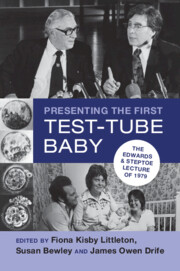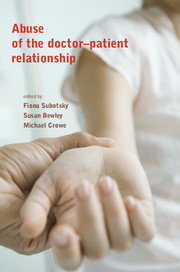The breaking of boundaries in doctor–patient relationships has been discussed in many recent publications, mainly from North America, Australia and New Zealand, where there have also been extensive modifications to codes of medical practice as a result (see Sarkar, 2004). In view of the lessons learned from recent scandals, it is timely to write about the British experience, especially as the delivery of healthcare, the legal and financial contexts, and even the favoured theoretical understandings are so different. In this book, we have concentrated on the paradigm case of the breaching of sexual boundaries, although other areas of transgression are also discussed. The greatest risk appears to exist in the specialties of psychiatry, gynaecology and general practice, and so it is appropriate that this educational book has a multidisciplinary authorship and editorship.
The genesis of the book was in the Royal College of Psychiatrists’ need to respond to both the process and the recommendations of the Kerr/Haslam Inquiry. This formal inquiry, chaired by Nigel Pleming QC, examined how, despite complaints of sexual abuse by patients over many years, two male psychiatrists working from the same hospital in the north of England were able to continue professionally without challenge (Department of Health, 2005; Kennedy, 2006). By reflecting on these events and other cases of boundary transgression, we hope readers may help avoid the repetition of such occurrences.
Are we perhaps too optimistic that people are interested in the topic of abuse within the doctor–patient relationship? After all, the public response to the final report of the Kerr/Haslam Inquiry was very muted. On the other hand, heightened interest in particularly shocking cases seems only to raise denial or distancing from the profession, and demands for extreme punishment and increased regulation from others. Between these two extremes doctors must recognise that it is by being aware of the need for professional boundaries that the vital trust of the public may be maintained. Thus, the Royal College of Physicians’ report (2005) Doctors in Society: Medical Professionalism in a Changing World defines professionalism as: ‘a set of values, behaviours and relationships that underpins the trust the public has in doctors’.
Unequal relationships
Abuses, and taboos to prevent them, do not occur in medicine alone. Any unequal relationship has the potential for sexual abuse and abuse of power built into it.

